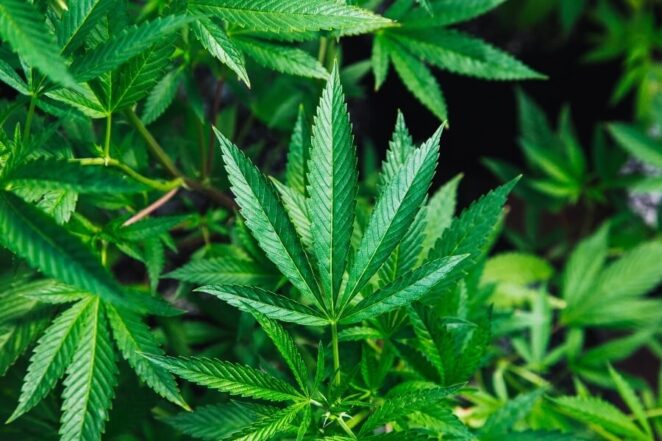Marijuana has been used for medicinal purposes for thousands of years, with evidence of its use dating back to ancient China, Egypt, and Greece. In the modern era, medical marijuana has gained widespread acceptance as a viable treatment option for a variety of medical conditions, including chronic pain, nausea, and anxiety.
However, despite its therapeutic potential, the legal status of medicinal cannabis remains complex and varies significantly from state to state.
What Patients and Caregivers Need to Know
If you are a patient or caregiver considering medicinal cannabis as a treatment option, it is important to understand the legal landscape and regulations governing its use in your state. Here are some key things to keep in mind:
- Research the laws in your state: Before using marijuana, make sure to research the laws and regulations governing its use in your state. This includes understanding what conditions qualify for treatment with cannabis, how to obtain a physician’s recommendation, and any restrictions on possession or use.
- Obtain a physician’s recommendation: In most states, patients must obtain a physician’s recommendation before they can legally use medical marijuana. Make sure to discuss your condition with a qualified physician like Marijuana Doctor Boynton Beach who is knowledgeable about medicinal cannabis and can provide a recommendation if appropriate.
- Obtain a medical marijuana card if required: In some states, patients must obtain a card in order to legally use medical marijuana. Make sure to follow the application process carefully, and provide all required documentation, including proof of residency and a physician’s recommendation.
- Use medicinal cannabis responsibly: As with any medication, it is important to use medical marijuana responsibly and in accordance with your physician’s instructions. Make sure to follow dosing instructions carefully, and be aware of any potential side effects or interactions with other medications.
- Be aware of potential legal risks: While many states have legalized medical marijuana, it remains illegal under federal law. As a result, users and providers are technically subject to federal prosecution, even if they are operating legally under state law. Be aware of the potential legal risks, and consult with an attorney if you have any questions or concerns.
A Brief History of Medical Marijuana

The use of marijuana for medicinal purposes in the United States dates back to the mid-19th century, when it was commonly used to treat ailments such as headaches, menstrual cramps, and labor pains. In the early 20th century, however, the federal government began to crack down on the use of marijuana, and by the 1930s, it had been effectively outlawed nationwide.
Despite this, medicinal cannabis continued to be used underground, and in the 1970s, several states began to pass laws that allowed for the use of marijuana in a medical context. However, it wasn’t until 1996 that California became the first state to legalize it on a large scale.
Since then, a total of 36 states and the District of Columbia have passed laws legalizing medical marijuana in some form. However, the legal status of medicinal cannabis remains complex, with different states having vastly different regulations regarding who can use it, how it can be obtained, and what medical conditions it can be used to treat.
State Regulations on Medical Marijuana
The legal status of medical marijuana is determined at the state level, and as mentioned, regulations can vary widely from one state to another. At present, 36 states and the District of Columbia have legalized medicinal cannabis in some form. However, the specific regulations governing the use of cannabinoids can differ significantly from state to state.
In some states, such as California and Oregon, medical marijuana is legal for any condition that a physician determines would benefit from its use. In other states, such as Florida and Texas, it is only legal for specific conditions, such as epilepsy or cancer.
In many states, patients must obtain a recommendation from a physician before they can legally use medical marijuana. This recommendation must typically specify the condition for which the patient is using it, as well as the dosage and duration of treatment.
In some states, patients must obtain a medical marijuana card in order to legally use marijuana for medical purposes. This card is typically issued by the state’s Department of Health or a similar agency, and requires a physician’s recommendation as well as proof of residency.
In addition to these requirements, many states have restrictions on where medicinal cannabis can be used, how it can be transported, and how much a patient can possess at any given time.
Federal Regulations

Despite the fact that a majority of states have legalized medical marijuana, it remains illegal under federal law. The federal government classifies marijuana as a Schedule I drug, meaning that it is considered to have a high potential for abuse and no currently accepted medical use.
As a result, users and providers are technically subject to federal prosecution, even if they are operating legally under state law. This has created a complex legal landscape for medicinal cannabis users and providers, with many individuals and organizations operating in a legal gray area.
However, in recent years, the federal government has taken a somewhat hands-off approach to medical marijuana, with the Obama administration issuing guidance to federal prosecutors to deprioritize prosecution of medicinal cannabis users and providers in states where it is legal.
In addition, several bills have been introduced in Congress in recent years that would provide additional legal protections for medical marijuana users and providers. For example, the Rohrabacher-Farr amendment, which was first passed in 2014, prohibits the Department of Justice from using federal funds to interfere with state medical marijuana programs.
However, the future of federal regulation of medicinal cannabis remains uncertain, particularly in light of the change in presidential administration in 2021. While President Biden has expressed support for decriminalizing marijuana at the federal level and allowing states to set their own policies on this drug, it remains to be seen how this will translate into concrete policy changes.

Conclusion
Medical marijuana has the potential to be a safe and effective treatment option for a variety of conditions. However, the legal landscape governing its use remains complex and varies significantly from state to state. If you are considering it as a treatment option, make sure to research the laws and regulations governing its use in your state, obtain a physician’s recommendation if required, and use it responsibly. With the right information and guidance, medical marijuana can be a valuable tool in managing chronic pain, nausea, and other medical conditions.




